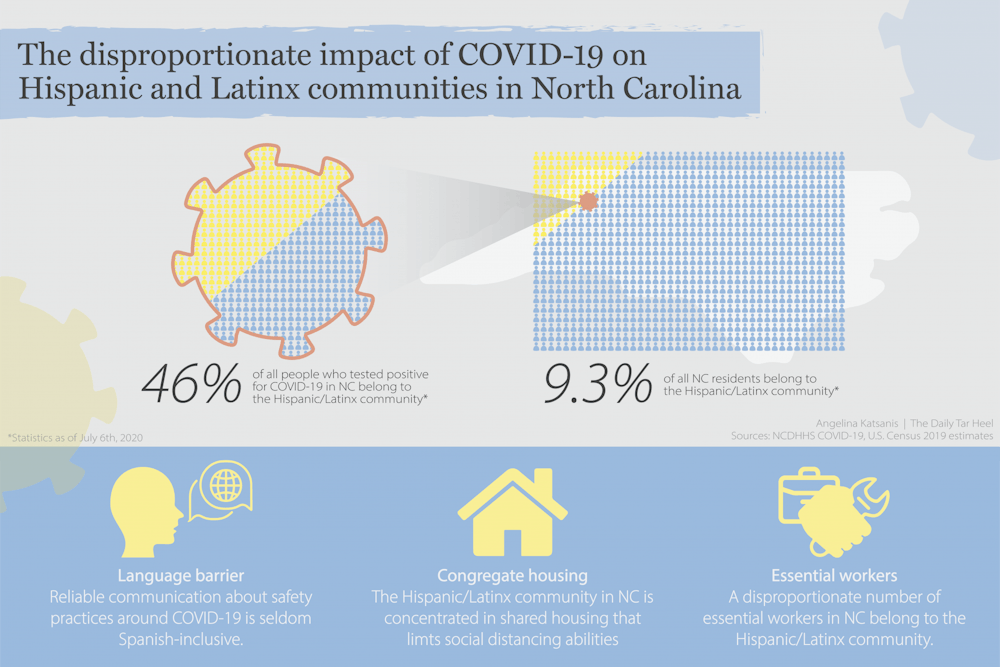El Centro Hispano has launched the NC Unida Contra El Virus campaign alongside several North Carolina Hispanic media outlets in an effort to send a "unified message" to the North Carolina Latinx community about COVID-19.
El Centro Hispano dedicates its work to building the Hispanic and Latinx community as well as advocating for equity and inclusion for the community in the Triangle, said Pilar Rocha-Goldberg, the nonprofit's president and CEO.
She said the campaign was born after the organization recognized that different messages about the pandemic were being shared with the Latinx and Hispanic communities as the cases in those communities began to increase.
“We thought it would be powerful and better to get together and give a unified message,” Rocha-Goldberg said. “We mostly wanted to show the community that the virus is a concern for everybody and show how everybody could get together to flatten the curve of infections.”
Rocha-Goldberg said the organization reached out to Spanish newspapers, radio stations and Univision so that they could reach the community throughout the Triangle Area and beyond.
She said it is important to give culturally appropriate information about COVID-19 that Latinx community members can understand.
“The idea is to reach everybody in the state, so we started with the main Spanish media and have been inviting other people, media organizations and governments to participate so our messages go to all community members in the state,” Rocha-Goldberg said.
According to El Centro Hispano's website, the campaign will feature multiple digital media initiatives over the next 10 weeks. Each initiative focuses on public health recommendations related to the pandemic, such as information on facial masks and safety measures for workers in different industries.
Revista Latina NC, a digital magazine geared towards the North Carolina's Latinx community, is one of the media organizations working with El Centro Hispano to share information for the campaign.




